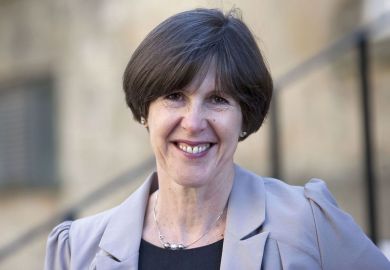Few professions complain as much as academics. But, when criticising existing higher education structures, we too often fail to reflect on what universities actually are. Universities are not simply our places of work, but are, at root, self-governing guilds of academics.
The first medieval universities (studium generale) were established by either students or teachers sharing a common interest: preserving the quality of degrees. Each wanted to ensure professors were knowledgeable, and so only teachers with a degree from one university could teach at another university.
Even before the first papal bull in 1233 recognised the degree-granting monopoly of universitates, these corporations provided a model constitution for all other medieval guilds. Self-government among equal members was central, as was the commitment to quality. Otherwise, anyone could claim they were a doctor, or priest, or lawyer, or professor; if everyone had a degree, everyone might as well not have a degree.
Initially, most students trained to be priests. But soon, word spread that clerical training could be useful for other occupations. Numbers grew, particularly among children of the upper classes. Academic knowledge changed over centuries toward classicism, through the Reformation and Counter-Reformation, and, in the modern era, toward science, comparative jurisprudence, history, anthropology and the range of subjects we cover today.
During the same era of nationalisation and the rise of industrial capitalism, the involvement – some might say, interference – of the state in university business crept in. In Britain, this began when non-conformist religions and liberal politicians broke the monopoly Oxbridge held over access to the Establishment church and, by extension, the Establishment classes.
Subsequent governments got more involved by providing research grants, funding ever-increasing student enrolments, assessing academic research output, and, most recently, by developing rankings that supposedly measure teaching quality according to a random fraction of students’ opinions.
But, recall the origins of the university: maintaining teaching quality is supposed to be a task for academics – indeed, their vocation! Further, the self-governing structure of the university existed to ensure academics could perform their professional responsibilities without external interference. How have we strayed so far as to allow such silliness as the teaching excellence framework?
Over time, we have delegated much authority to administrative staff, since few of us actually care to organise admissions, marketing, compliance, accounting and a range of professional services necessary for the day-to-day functioning of any modern, complex, global institution. Undoubtedly, this administrative caste fuses its interests with that of the "university" as a whole. Then when policy is made in Whitehall or Westminster, universities speak via the Russell Group or Universities UK – organisations which claim to represent the higher education sector as a whole, but more often than not, represent the needs of the administration, and not necessarily the academics as a professional group.
Similarly, the University and College Union (UCU) has organised itself like other trade unions, thereby inadvertently leaving the impression that academics are just like other union-based workers, rather than professionals who have obtained doctorates certifying high proficiency within our fields.
What is missing from university policy discussions is a coherent, comprehensive voice representing the professional interests of academics – as opposed to the interests of administrators, students or non-academic university employees. This would resemble something like the Royal College of Surgeons or the Inns of Court – indeed, it would resemble the original corporate, self-governing professional guild par excellence: the university.
Eric Royal Lybeck is a lecturer in sociology a the University of Exeter.
Register to continue
Why register?
- Registration is free and only takes a moment
- Once registered, you can read 3 articles a month
- Sign up for our newsletter
Subscribe
Or subscribe for unlimited access to:
- Unlimited access to news, views, insights & reviews
- Digital editions
- Digital access to THE’s university and college rankings analysis
Already registered or a current subscriber?






